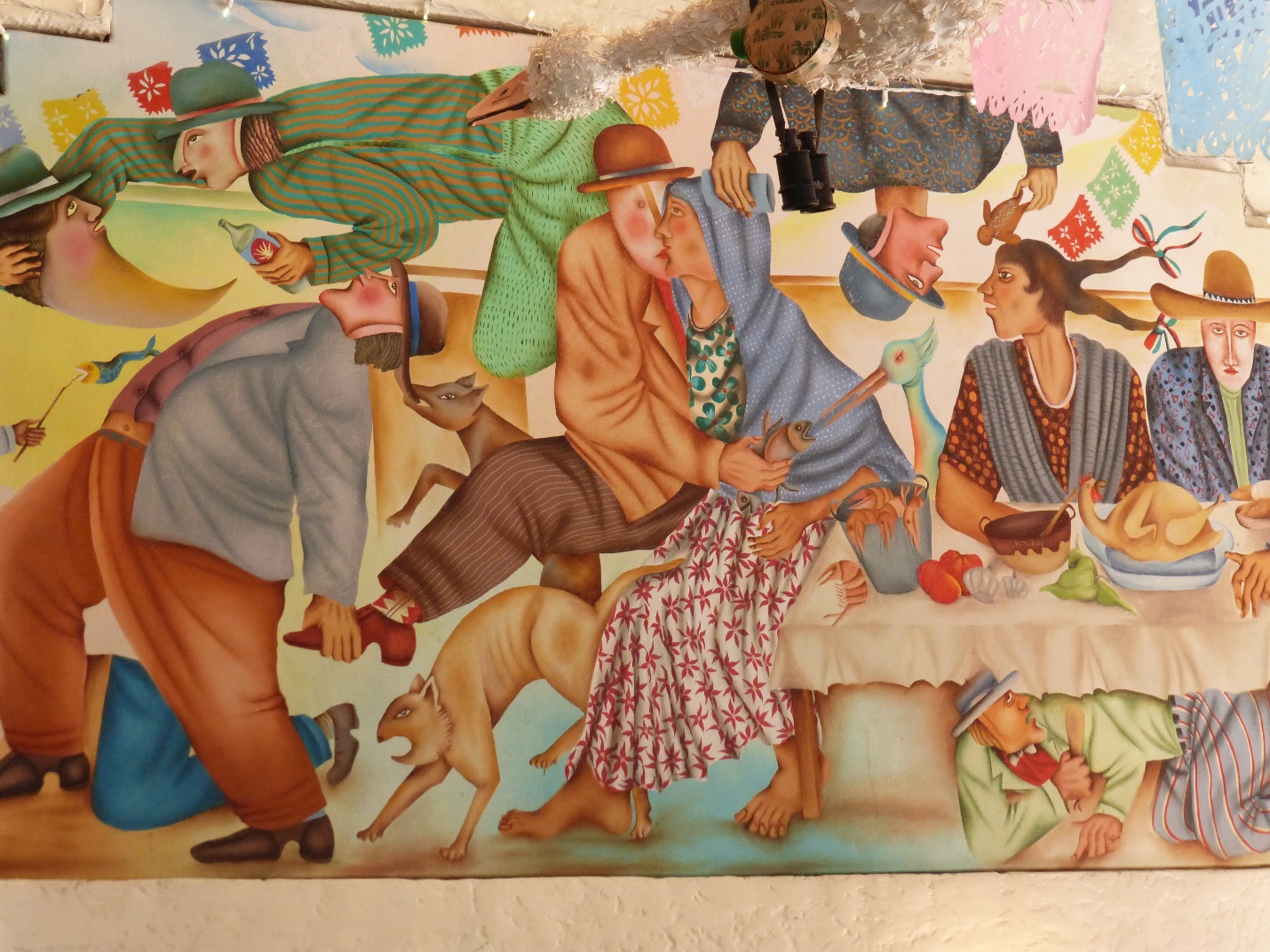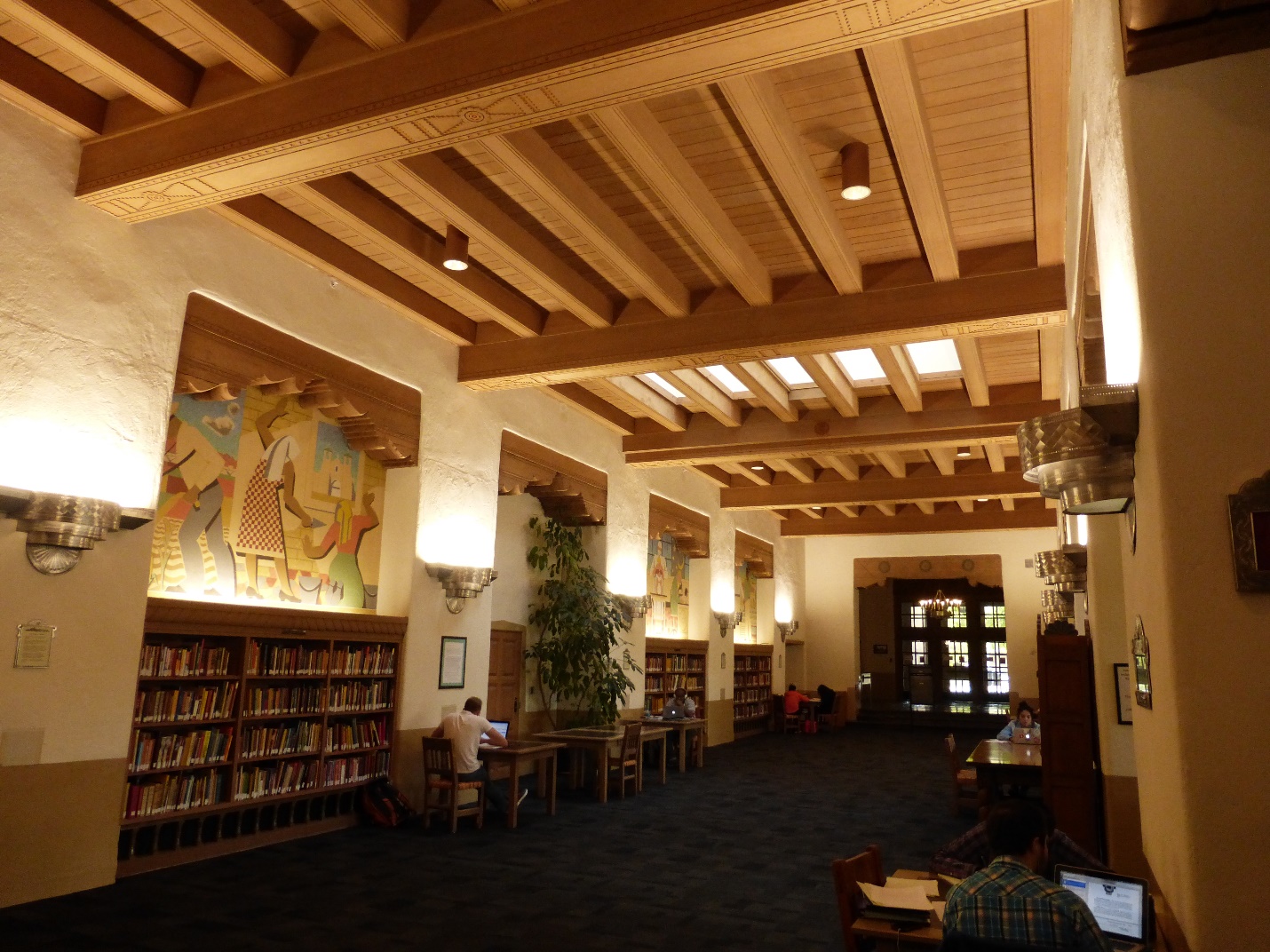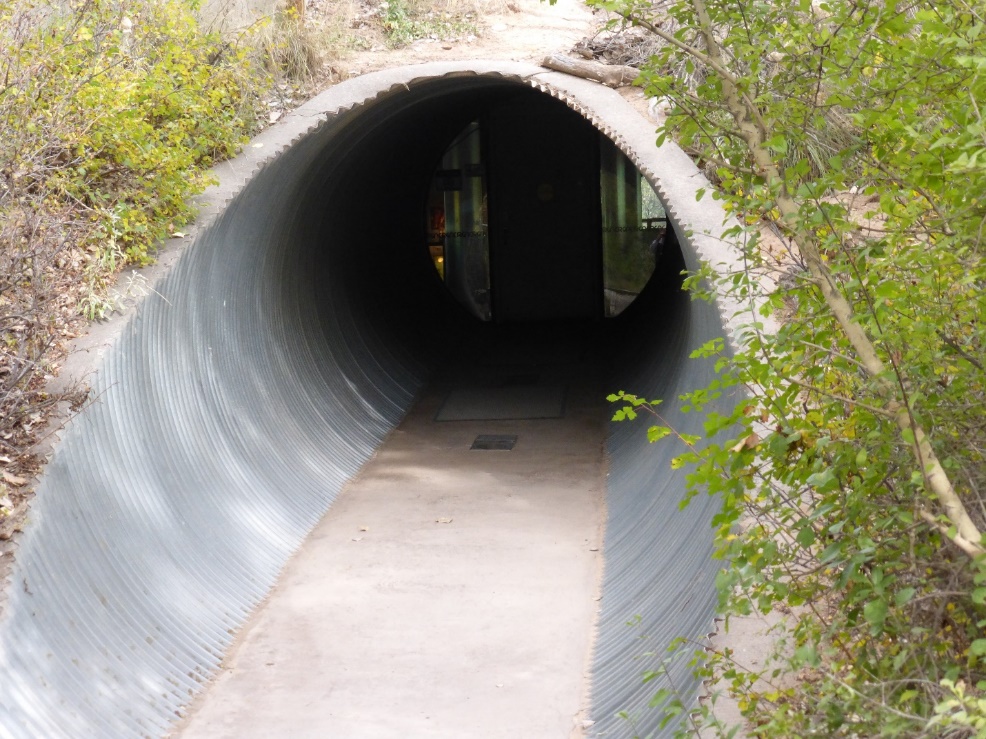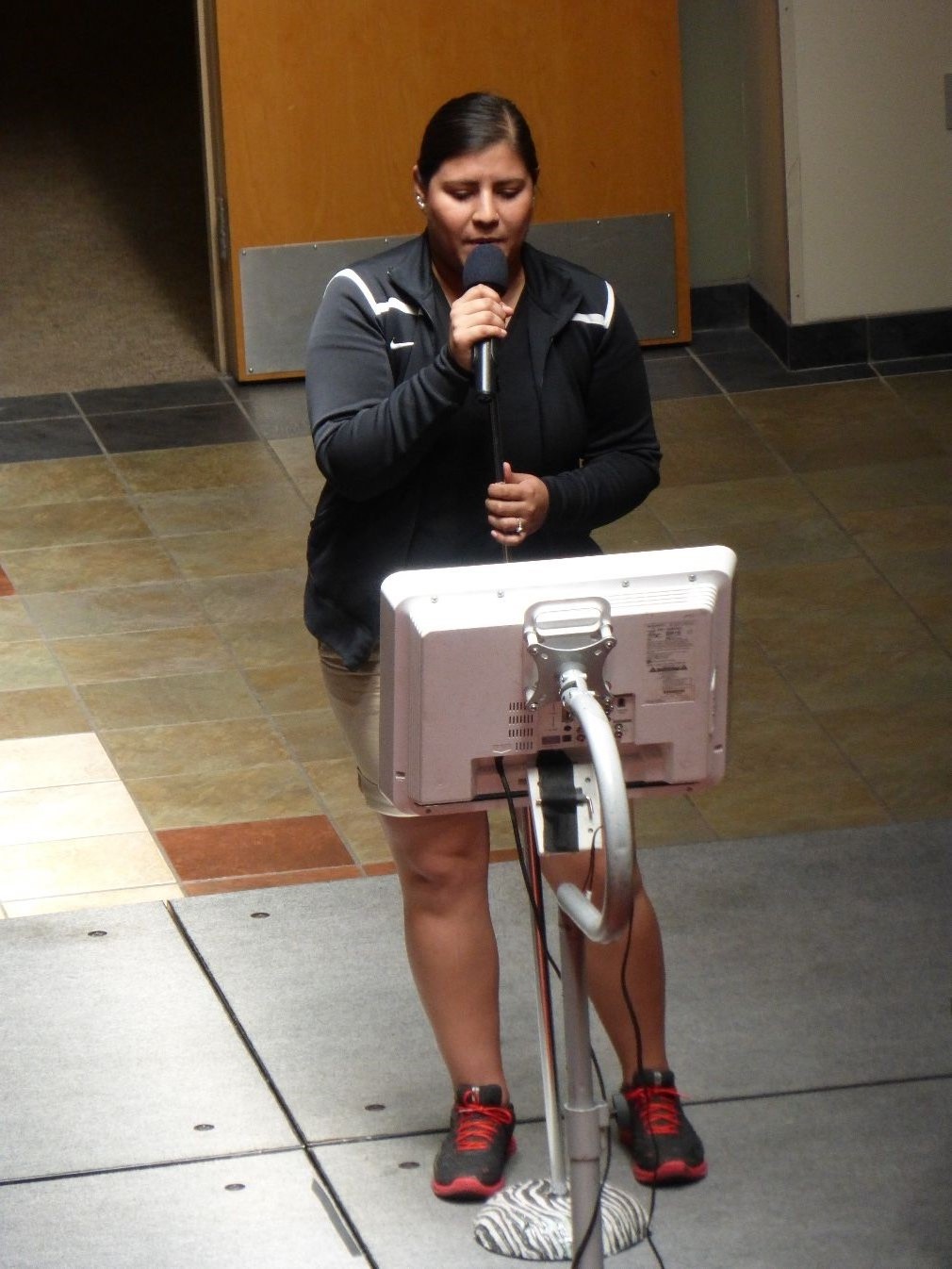
Mural at a popular New Mexico restaurant
When I travel to Santa Fe, New Mexico, I marvel at how the Native American, Spanish, and Mexican cultures exist within one state. At least on the surface, there seems to be a great deal of respect for each other’s customs and inclusion of all culture in art and architecture.
The photo below is a good example of the blending and inclusion represented in the Zimmerman Library at the University of New Mexico campus. It shows Pueblo Revival architecture at its finest, with its heavy wood lintels to its striking viga-and-corbel ceilings.

The photo below is another good example from the Rio Grande Nature Center State Park near Albuquerque. Here we see the entrance to the center showing a corrugated culvert that was probably salvaged from a nearby acequia.

Many years before Spanish settlements, ancestral Puebloan peoples had developed an organized manipulation of water resources as early as 800 A.D.
This skill continued to be developed and by 1400 they had managed to create a gravity-fed irrigation system on the major rivers in New Mexico.
The very word acequia is from early Spanish settlements that inherited an amalgam of irrigation systems from the Roman Empire and the Moors. With the treaty of Guadalupe Hidalgo in 1848, this amalgam of Spanish and Indian laws and customs was mixed with existing American law and custom.
Beyond New Mexico’s cultural inclusiveness and diversity, there are still several areas that the state has failed at achieving.
New Mexico’s population is 47.7% Hispanic and 38.9% white (not Hispanic or Latino), but only 23.6% of firms are owned by Hispanics, and 5.3% are owned by American Indians—a very poor showing. According to the National Center for Higher Education, “New Mexico’s personal income has fallen from 83% of the U.S.average in 1960 to 74% in 2000.”

Speaker on the Student Quad at the University of New Mexico
The National Center for Higher Education also concluded: “The education system in New Mexico (from high school to college completion) fails to retain Hispanics and Native Americans at nearly the rate of whites and Asians. These racial/ethnic disparities are also evident in the graduation rates of baccalaureate students…”
In summary, New Mexico is an outstanding example of a multicultural state but has some work to be done in addressing the disparities of their majority and minority ethnic groups.







